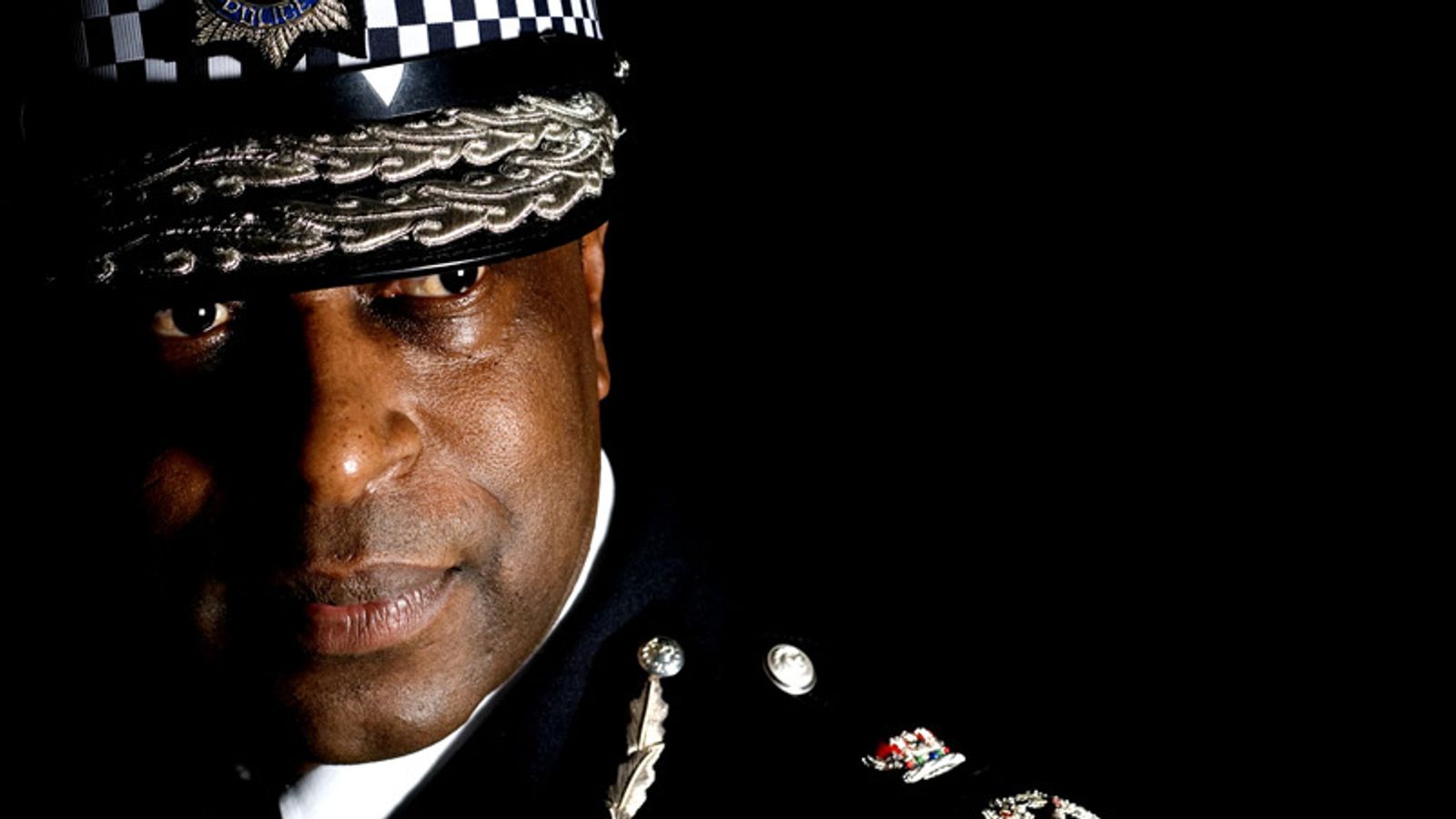In 2004, Michael Fuller made history, becoming the first black man to hold the title of Chief Constable.
But the road to get him there would be a long and difficult one, with discrimination and racism along the way.
Mr Fuller was born in 1959 to parents who arrived in Britain during the Windrush era. But after his parents split, his mother struggled to look after him and he was taken into care, raised in the countryside by a woman he would grow to love and call Auntie Margaret.
When Mr Fuller eventually faced racism and discrimination in school, she would tell him to “stop, think and decide how to react”, something he said served him well “both as a child, but more importantly when I was a police officer”.
At the age of 16, he chose to make his childhood dream of becoming a police officer a reality, joining the Metropolitan Police as a cadet.
“I remember the first day I went out in the streets that I literally stopped the traffic – it was like an alien had landed,” he said.
“Some people were staring at me, some curious, but some hostile.
Sarah Everard: Seek ‘independent verification’ if stopped by plain-clothes police operating alone, senior Met officer says
Wayne Couzens may have committed more crimes, including one just days before he killed Sarah Everard
World’s longest under-sea power cables switched on – and they’re bringing hydropower from Norway
“Some white people were bemused by seeing a black police officer. And black people, some very hostile. Some very friendly – thinking it was wonderful to see a black officer.”
Over the next three decades, whether Mr Fuller liked it or not, race was going to define him.
He would have to endure colleagues telling racist jokes as “banter”, as well as abuse from people in the black community, suggesting he was a “sell out” and a “traitor” for joining the force.
“I would sometimes return to the police station and think: How can I put up with this?”
But he did. And he is grateful to his allies for supporting him along the way.
“They were few and far between, but they were there. They kept me in the job.
“And I was also very popular because I would take on unpopular jobs, like searching dead bodies for example and dealing with domestic disputes – all these things that cops didn’t like dealing with, I would take on quite happily.
“I was very passionate about the policing side of it. I just didn’t like the racism.”
But Mr Fuller rose through the ranks, working in some of the most challenging roles policing has to offer and becoming instrumental in race relations.
He became the founding chair of the Met Black Police Association, where for the first time Black and Asian colleagues would have a safe space to share experiences and meet other officers like them.
Mr Fuller also made it a mission to listen to community voices throughout his career, asking them for advice and ensuring they felt listened to. And after hearing concerning reports of police brutality, he listened, and was the first to install CCTV in police custody cells.
After decades of broken relations between police and black communities, he said he was “very much on the side of the community, and we wanted the community to support us”.
He was among the first to recognise there was an issue with the way crimes were being dealt with in black communities, often being labelled “black on black crime”, and in his opinion, ignored.
“We found that if you were a black victim of crime, your crime had less chance of being solved than if you were white, and that that was a fact.
“We looked gun crime in particular, which in the year 2000, I suppose it was out of control.
“And I was asked to tackle it as a problem.”
His solution was Operation Trident, which used information gathered by community members to make targeted arrests – which proved successful.
He said: “The gun crime was dramatically reduced. So much so at the end of the four years that my boss at the time said, ‘the level of gun crime now doesn’t really justify this unit’.”
And so it eventually closed.
But that wasn’t the end for Mr Fuller.
In the aftermath of the Macpherson Inquiry, which explored police failings to investigate the death of Stephen Lawrence, he would be called upon again to make a profound change to policing.
“He was murdered, and there was severe criticism, both in the way the murder investigation was handled, but also the treatment of his parents, and the way that the whole investigation was conducted.”
His solution was to set up the Racial and Violence Crime Task Force, and to allow community members to advise officers.
“All the recommendations I made in terms of improving murder investigations and involving independent advisory groups were accepted. And they’ve really become quite a normal part of policing,” he said.
In 2010, when Mr Fuller retired from his role in Kent, the force had become one of five of the most improved forces in England and Wales.
And after 34 years of service, he still spends his time advising the government and encouraging more black officers to join the police.
When asked about what mark he would like to leave on the world of policing, he said: “I’d like to go down in history as somebody who made a positive difference to policing and the police service, who carried out his role as the Chief Constable with humility.
“I was passionate about joining the police. It was something I really wanted to do. I felt I could make a positive difference.
“And I feel I have done. I’ve reached the highest levels of the police service. So that’s something I’m really proud of.”






















